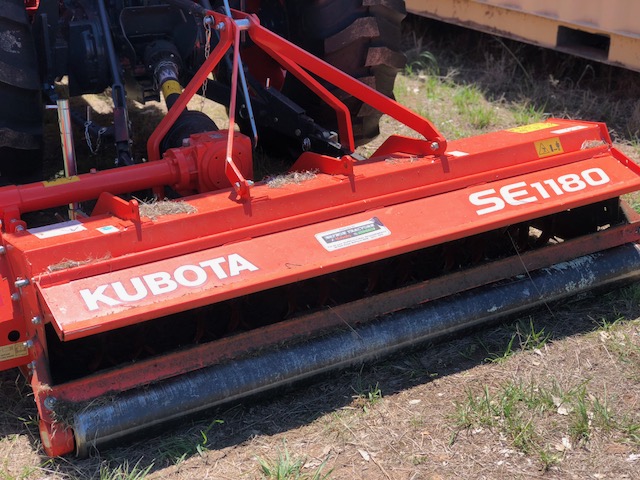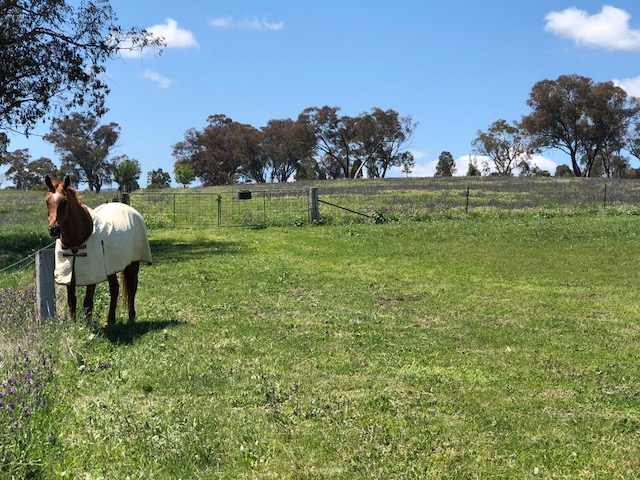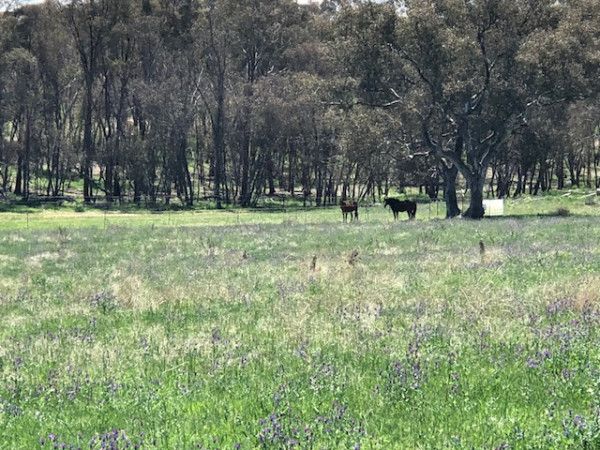We purchased Winterwood farm in July of 2018 which was in the middle of the worst drought NSW has seen in 100 years. Not having yet spent 12 months going through the seasons it’s hard to assess what we need to do in one straight forward plan, so every week, month and season is a slow and exciting reveal as we notice species of birds, plants and other native and introduced animals as they appear.
The Ph here is a variety of neutral to slightly acidic. You can see areas where there is a lovely depth of soil and moisture, and other areas which indicate granite loam and more acid soils. Sheep’s sorrel is one plant which shows us that the soil is acidic and will need support from basalt dust and dolomite.
After the long dry spell we had an over abundance of Paterson Curse appear, as well as black thistle, saffron thistle and the dreaded Cat’s Head. Underneath all this was sub clover, rye grass, phalaris, native grasses and various other varieties of grasses and broadleaf plants. Bees are buzzing around like crazy getting all the pollen from the “curse” which make the BEST honey.
The standard approach would be to spray the whole paddock with Round Up and then rehabilitate the pasture- but I don’t want to do this. The Patterson’s curse is good for the soil ( it has a tap root which breaks up compacted soils) and the bees are loving the flowers!
I want to use a sequence farming/holistic approach

I decided to mow the grass to knock the Patterson’s curse in the horse paddock and to help dry out the rich clover which was bringing my horses perilously close to laminitis. Horses by the way, do not graze on Paterson’s curse unless there is no other feed available. Some horses can develop a taste for it if they have no other feed, but generally they won’t eat it.

You can see the results in the images of before and after, and the horses looking extremely well and shiny!
The benefits of mowing for weed control
Reducing canopy cover to enable competing grasses to dominate
Cuts the flowers to halve the seed bank
Stresses the curse to die back
Mulch mowing composts the soil so will help to maintain moisture in the soil
Breaks up manure so helps to dry out eggs that require moisture to stay viable.
Helps biological controls like the Taproot Flea Beetle that targets Patterson’s curse in the spring.
There is plenty of feed still, the horses are no longer at risk of laminitis as the pasture has dried out VERY quickly (it’s been a bit dry) and the weeds have certainly been knocked around.


